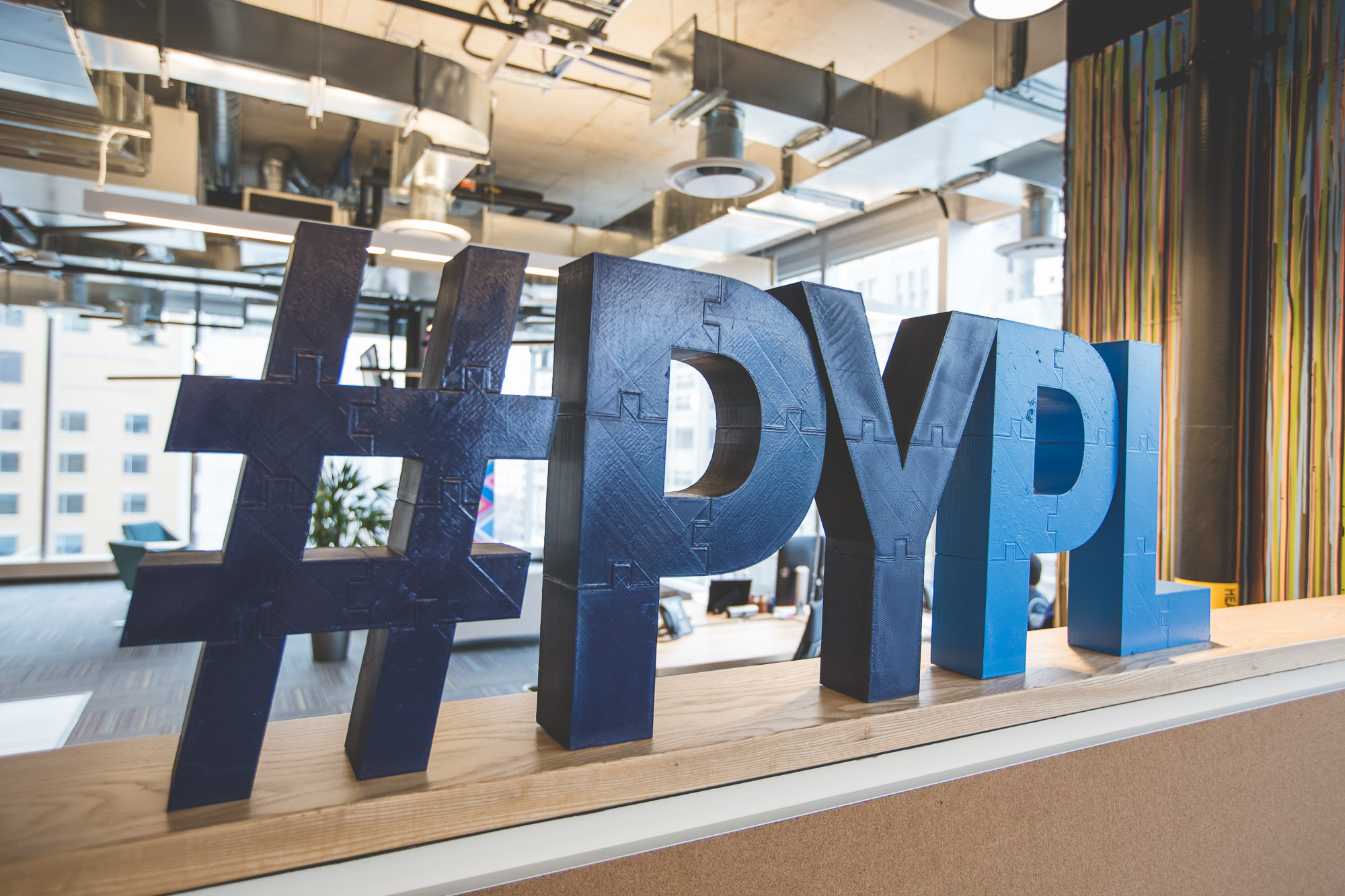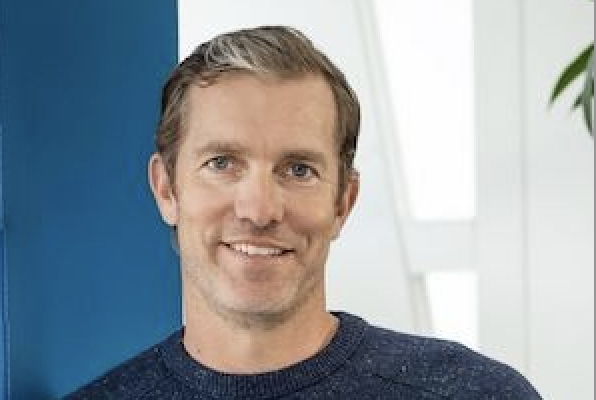James Loftus reveals the seven areas where the PayPal Ventures team is keen to make investment in startups.

PayPal, under pressure from competitors like Apple and Google in payments, has promised that 2024 will be a year of transition, with innovation leading the way.
Alex Chriss, who was named PayPal’s new president and CEO last September, has promised that the company will “shock the world” and catch up where it may have fallen behind in innovation.
Much of this new innovation may happen internally at the company, but PayPal Ventures, the investment arm, will have a role to play in making sure the fintech company stays up-to-date on the latest technology disruptions, says James Loftus, who joined the PayPal Ventures team as managing director in 2022.
“PayPal Ventures’ goals are with what Alex and his new team’s goals are,” he says. “We’ve spent time this year making sure that we’re aligning.”

PayPal Ventures already has a robust investment portfolio, having made more than 70 investments since it was set up in 2017. It has invested in several startups that now have valuations of more than $1bn, including ShipRocket, the Indian e-commerce platform, cross-border payments platform PPRO and blockchain company Aptos Labs.
But recently, the company shifted to looking at early-stage companies, investing in more series A rounds to get more learnings.
“In series A companies just generate much more strategic insight for a company like Pay Pal,” says Loftus. “If you don’t know about a company at the point when they are a billion-dollar fintech company then what’s wrong with us? Whereas there’s a lot of $50m fintech companies that we don’t know about.”
Loftus also points out that a strategic investor can be more help to a series A startup than it can be later on.
Series A isn’t harder — but it is different
A shift to investing in seed and series A rounds has been a trend for many corporate venture units over the past two years. Some 66% of all corporate-backed startup funding rounds were at seed or series A last year, according to GCV Research.
But early-stage investing requires a slightly different skillset. Young startups have less of a track record and may be harder to judge. Loftus says series A investing is not necessarily harder or riskier.
“I don’t think that series A requires more due diligence. I think it’s different,” he says. “I think you can give yourself false confidence in the later stages because you have spreadsheets. You’re really focused on models and numbers when you get to Series C and growth. But these are still really fast-moving targets. You’re looking at a company that should be growing 40% to 100% a year. The higher that trajectory, the wider that cone of variability in the numbers.”
“I think anyone who’s in corporate venture who doesn’t talk about adverse selection is fooling themselves.”
One thing that series A investors have to be careful to avoid, however, is adverse selection. This is the risk that a corporate investor will only end up talking to second-tier startups, the ones seeking protection or a potential acquisition from a corporate because they won’t be able to go all the way on their own.
Loftus, who worked on the set-up of Google Payments and started the corporate venture capital programme at Cash App, says this is the elephant in the room that CVCs don’t acknowledge enough.
“I think anyone who’s in corporate venture who doesn’t talk about adverse selection is fooling themselves,” he says.
To avoid this trap, he says, the PayPal team sets a very high bar for the return on their investments.
“We can’t settle in and say: ‘Oh, this is a great two or three-X return. That’s not series A investing. If you don’t believe that there’s the potential for an eight to 10x plus return, you’re doing it wrong. We push each other pretty hard on that,” Loftus says.
The team has enjoyed seven years of top-quartile returns on investments, which has bought them a great deal of credibility with the parent company. There is a strong desire to maintain this track record.
These are some of the investment areas that Loftus and the PayPal Ventures team is keen to focus on in the next few years:
Artificial intelligence
Like every other investor in the world, Loftus has his eyes on potential AI investments. The company last month announced an AI fund, earmarking a portion of its total funds for investment in early-stage AI investments across all industries.
PayPal CEO Chriss has spoken publicly about helping the company’s merchant customers increase profitability by using AI to mine their data better. A first investment from the AI fund was in Rasa, a San Francisco-based startup that provides tools that allow enterprises to build their own customised AI chatbots.
Loftus says there is a gap in the market for AI programmes tailored for corporate use.
“Right now, there’s an opportunity for true experts to build AI. There’s a gap. Open AI has built an amazing tool that has opened up the world’s eyes to AI; but at the enterprise level, there needs to be different layers,” he says.
“In a regulated industry you can’t have a black box customer service chatbot — they need to know why it’s doing what it’s doing.”
“It was nice to have our first AI investment be a nice proxy for how we think about it. It’s a company that uses a strong language model engine but also has enterprise-ready tools. One of the hardest things if you’re in a regulated industry is you can’t have a black box customer service chatbot — they need to know why it’s doing what it’s doing. You need to be able to answer to a regulator why it said something, why it did something, what it would do in certain situations.”
Loftus adds that he’s keen to not just look at financial services-related AI startups.
“We’re interested in in all aspects of AI. I just don’t think AI is mature enough to be down a vertical rabbit hole,” he says. “That is why, when we launched the AI fund, it was really important for us to try to get out there. I didn’t want us to meet 50 fintech AI companies and that’d be our load of AI.”
Cybersecurity
Cybersecurity is another big theme for Loftus and his team.
“We feel as PayPal Ventures, it’s important to understand the forefront of what’s happening. Cyber criminals are trying to get into every business, but a business that that holds money is even more of a target, and so I feel it’s very, very important for us to be able to provide cutting-edge insights in what’s happening with cybersecurity,” he says.
However, PayPal Ventures doesn’t invest in fintech-related cybersecurity — none of its cybersecurity investments have been in startups focused on using it for fintech companies.
Other areas of interest for Loftus include:
Spreading fintech advances into emerging markets
There is still a lot of scope for taking fintech advances from Europe and the US into other markets, says Loftus.
“There’s a lot of fintech innovation that the US and Western Europe have that hasn’t made it to the rest of the world yet. We have looked and asked: ‘How is the way people interact with their financial system going to evolve in Latin America and Southeast Asia and Sub Saharan Africa and the Middle East?’”
Local differences in how people handle money
At the same time, the team is interested in exploring some of the unique ways that people interact with money in different markets.
“One of my favourite things about fintech is people and money are incredibly idiosyncratic. Germans and French people, for example, interact with their money in a completely different way, even though they are all in the European Union, use the same currency and share a border,” says Loftus.
There’s a lot of opportunity in looking at local financial solutions — although investors need to consider carefully how much these can scale.
Resurgence of credit startups
Surprisingly, Loftus is also interested in credit-based startups, a market segment that had its heyday a decade ago, and which has since fallen out of favour with investors.
“It does seem like there’s a resurgence in credit-based startups. If you look back 10 or 11 years ago, in the first wave of fintech, there was a lot technology-enabled lending that went out of favour because a lot of those companies went public and didn’t do well as public companies,” says Loftus.
Loftus says a lot of those early credit startups, including names like Kabbage and Lending Club, attempted to take risk out of lending by using new types of credit scoring technologies. But, in reality, it is hard to change the risk profile of lending to any large extent.
The new set of credit startups, however, are taking a different tack. They are using credit as a “wedge product” to sell other services to customers, such as B2B payments, or consumer fintech. They may only break even on the lending but can make money on the added products.
Employee benefits as a sales channel
In 2022, PayPal Ventures invested in Northstar, a startup creating financial planning tools for corporate employees. Loftus says using employee benefits programmes as a way to sell financial services is an area with a lot of promise.
“Financial planning is a very tough customer acquisition space, but this is a product that sold as an employee benefit. Instead of selling to millions of individuals, they’re selling to thousands of enterprises who then make it an employee benefit,” says Loftus, describing Northstar’s model.
“We’ve started to look more of those businesses that use that employee benefit as a sales channel.”
Stablecoins for Web3
Last autumn, PayPal launched its own stablecoin, a crypto token with its value tied to the dollar, in a move that many hope will help popularise the use of cryptocurrencies among mass market users rather than just experts.
“We are particularly excited about stablecoins as I think they are the first and potentially only crypto product that currently has product market fit. It feels like stablecoins are starting to come into their own as something that actually serves a purpose,” says Loftus.
PayPal Ventures seeks to invest in the ecosystem around the stablecoin, known as PYUSD, helping to encourage usage.
“That’s probably the tightest strategic tie we have right at the moment, looking at opportunities to create an ecosystem to support our stablecoin product,” says Loftus.
James Loftus was one of the speakers at the GCVI Summit in Monterey in March 2024

Maija Palmer
Maija Palmer is editor of Global Venturing and puts together the weekly email newsletter (sign up here for free).








